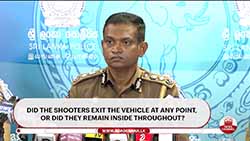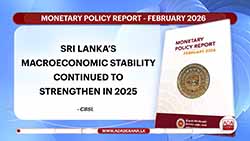Sri Lanka fast emerging as organ transplant hub for Indians - report
July 8, 2015 10:09 am
With Indian organ transplantation rules making it impossible for chronic kidney disease (CKD) patients to buy organs, the island nation of Sri Lanka is fast emerging as the market for organ trade for Bengalureans, Indian media reports.
At least that is what doctors tracking organ transplantation trends claim. They say at least a dozen patients from Bengaluru fly down to Sri Lanka every month since flexible rules there with regard to ‘unrelated’ kidney donation offer them a lifeline, the Bangalore Mirror reported.
The rules in India — Transplantation of Human Organs Act — prohibit a patient from receiving organs from persons other than spouse, son, daughter, father, mother, brother, sister, grandparent or grandchildren.
The article mentions one case where an Indian politician’s wife had faced an insurmountable challenge in finding a donor match among relatives. Money was not a problem for a patient of her means but her MLA-husband couldn’t manage to bend the rules either and the doctors in Bengaluru too threw up their hands in despair.
“Just when it seemed all was lost, a trip to Sri Lanka, along with her driver, gave her a fresh lease of life. She returned with a new kidney,” the report added.
Referring to the case of the MLA’s wife, a source said, “In Bengaluru, the only person whose blood group matched with hers was her car driver. But since he was not related to her, he couldn’t give his kidney. So she went with him to Sri Lanka, got the procedure done and returned with a functional kidney.”
In 2010, the Sri Lankan government cleared the way for a person ailing from a kidney disorder to obtain organs from a non-related donor. Initially, it was practised only in government hospitals, but subsequently it became commercial after private hospitals encashed on the rule and started catering to patients across the country’s borders. It wasn’t long before patients from Bengaluru turned their gaze toward Sri Lanka.
Besides Sri Lanka, Iran and Singapore also perform ‘nonrelated’ transplant procedures. Pointing to the preference for Sri Lanka, Dr Sankaran Sundar, director and chief nephrologist, Columbia Asia Hospital said, “In the case of Singapore, one has to obtain a medical visa and the procedure could cost Rs 1crore along with post-operative care. Sri Lanka, on the other hand, has visa-on-arrival and the cost is close to Rs 10-12 lakh if a person takes a donor from here and close to Rs 25 lakh if the donor is arranged there.”
He said transplants are usually cleared by an authorisation committee and a monetary incentive to the recipient may be acceptable.
“In fact, it was observed that a lot of monks came forward to donate their kidneys and use the monetary compensation for the benefit of their monasteries,” Dr Sundar said.
Nephrologists in India have been pressing for flexibility in rules to curb shortage of organ donation. Dr Sudharshan Ballal, chief nephrologist, Manipal Hospital says, “The wait for transplant is so long that the patient prefers moving to Sri Lanka.
People who can afford it also consider Singapore where the number of transplants has shot up. The donor is mostly taken from here.”
Nephrologists stress that kidney donation between non-relatives is not illegal.
Nephrologist Dr Ajit K Huligol says, “Recently, grandparents were added to the list of permissible donors, but it is absurd because a 75-year-old grandparent will not have a healthy kidney to donate to his grandson. In rare cases, the authorisation committee approves an unrelated donor. Permission is likely to be given if both belong to the same economic class. We have to ensure the donor is financially sound and will not demand money from the potential recipient, but this is rare.”
While the rules in India push patients up against a wall, nephrologists warn about the risk in transplants done abroad saying post-transplant infections could pose a danger, the Bangalore Mirror reported.
“Recently, a woman patient on dialysis disappeared for a month and came back after undergoing transplant in Sri Lanka. But she suffered a major infection and we had to remove her kidney. Unfortunately, the infection spread and she finally succumbed,” says Dr Huligol.












